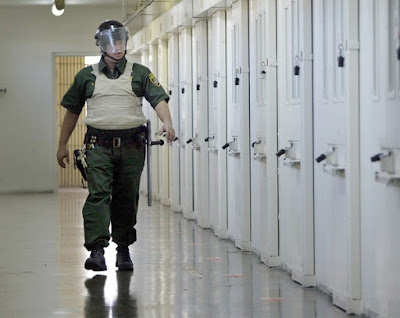After narrowly surviving voter initiatives in 2012 and 2016, California’s death penalty law may soon be in jeopardy again, this time at the U.S. Supreme Court.
The court is being asked to take up a challenge to the death penalty in Arizona, where the law makes virtually every first-degree murderer subject to potential capital charges. According to a lawsuit on behalf of a condemned double murderer, the state is violating Supreme Court rulings dating from the 1970s that limit capital punishment to specific categories of especially heinous killers — the “worst of the worst,” in plain English.
If at least four of the nine justices agree to hear the case, as numerous advocacy groups are urging, the court will schedule arguments and issue a ruling, most likely in the 2018-19 term that begins in October. If it strikes down Arizona’s death penalty law, the ruling could also apply to the California law, which is nearly as broad.
And that could spare the lives of the 746 prisoners on the nation’s largest Death Row.
California, like Arizona, has expanded its definition of capital crimes and “made the vast majority of murderers eligible for the death penalty,” said Rudolph Gerber, a retired Arizona prosecutor and judge who drafted his state’s death penalty law in 1973 at the request of state Sen. Sandra Day O’Connor, the future Supreme Court justice.
That law initially was relatively narrow, but Gerber, in a brief filed with the Supreme Court, says the state Legislature has since expanded it far beyond constitutional standards. He told The Chronicle that a crucial Supreme Court-mandated function of death penalty laws, narrowing their scope to apply only to the worst categories of murders, “has been diminished if not eliminated both in Arizona and in California.”
Kent Scheidegger, legal director of the Criminal Justice Legal Foundation in Sacramento and one of the authors of a November 2016 ballot initiative aimed at speeding up executions in California, said he thinks there’s only a “remote” possibility that the Supreme Court will overturn the Arizona death penalty law. But he agreed that such a ruling “would probably apply to California.”
State Attorney General Xavier Becerra, whose office would defend the California law in court, declined to comment on the case.
The Supreme Court struck down all state death penalty laws in 1972 and began upholding revised, narrower laws in 1976. Both rulings said the laws, to be constitutional, must not define capital crimes so broadly that they give prosecutors and jurors virtually unlimited discretion to decide which murders should be punished by death. Such an approach would open the door to decisions based on politics, geography and race, the court said.
➤ Click here to read the full article
Source: San Francisco Chronicle, Bob Egelko, xxx, 2018
⚑ | Report an error, an omission, a typo; suggest a story or a new angle to an existing story; submit a piece, a comment; recommend a resource; contact the webmaster, contact us:
deathpenaltynews@gmail.com.
Opposed to Capital Punishment? Help us keep this blog up and running! DONATE!
"One is absolutely sickened, not by the crimes that the wicked have committed,
but by the punishments that the good have inflicted." -- Oscar Wilde












